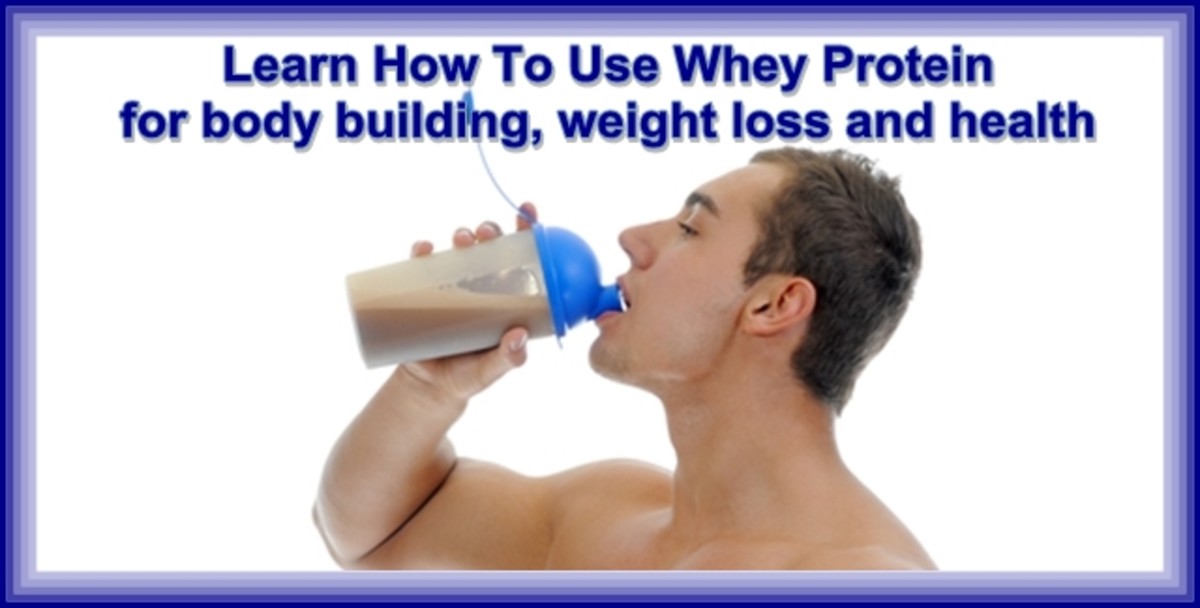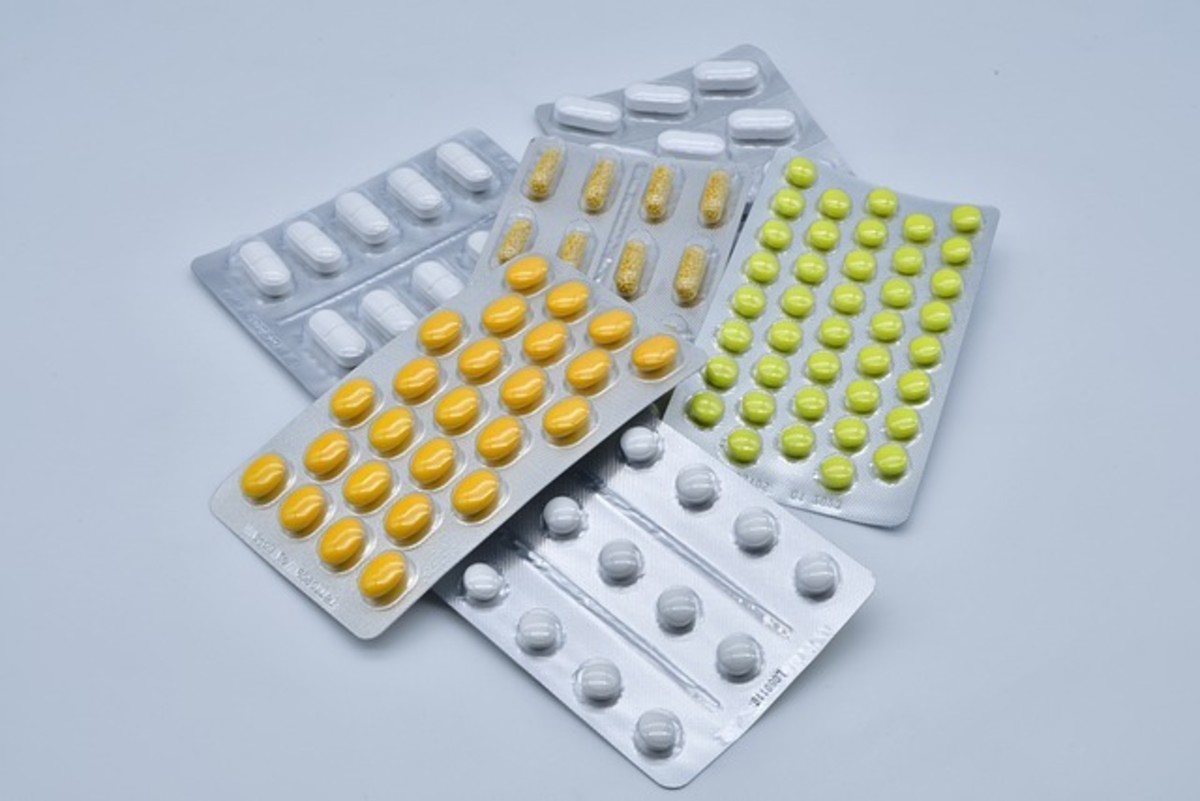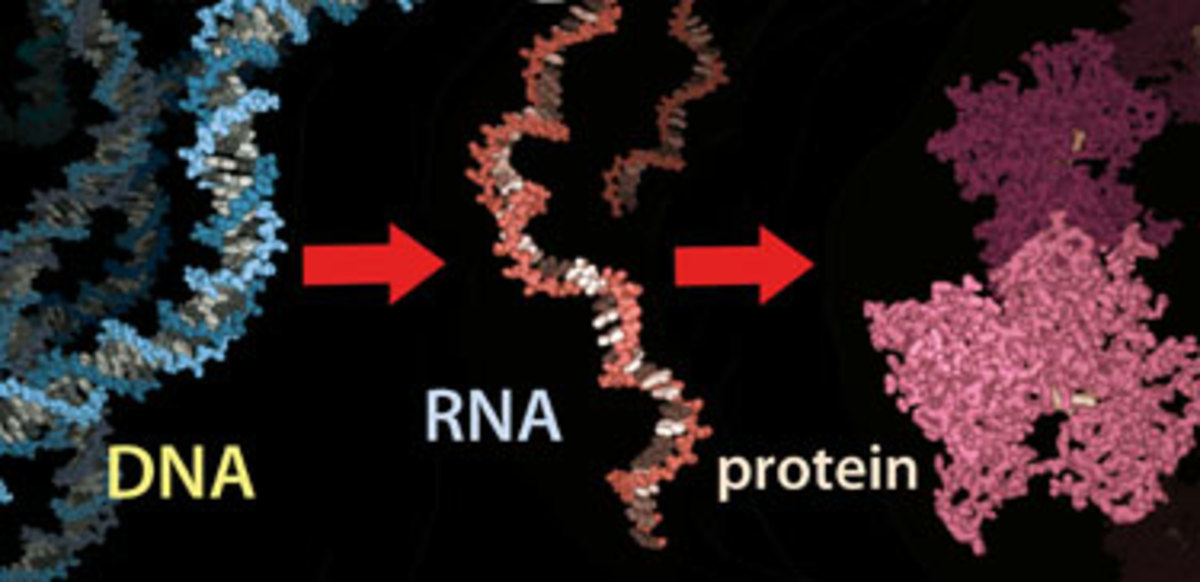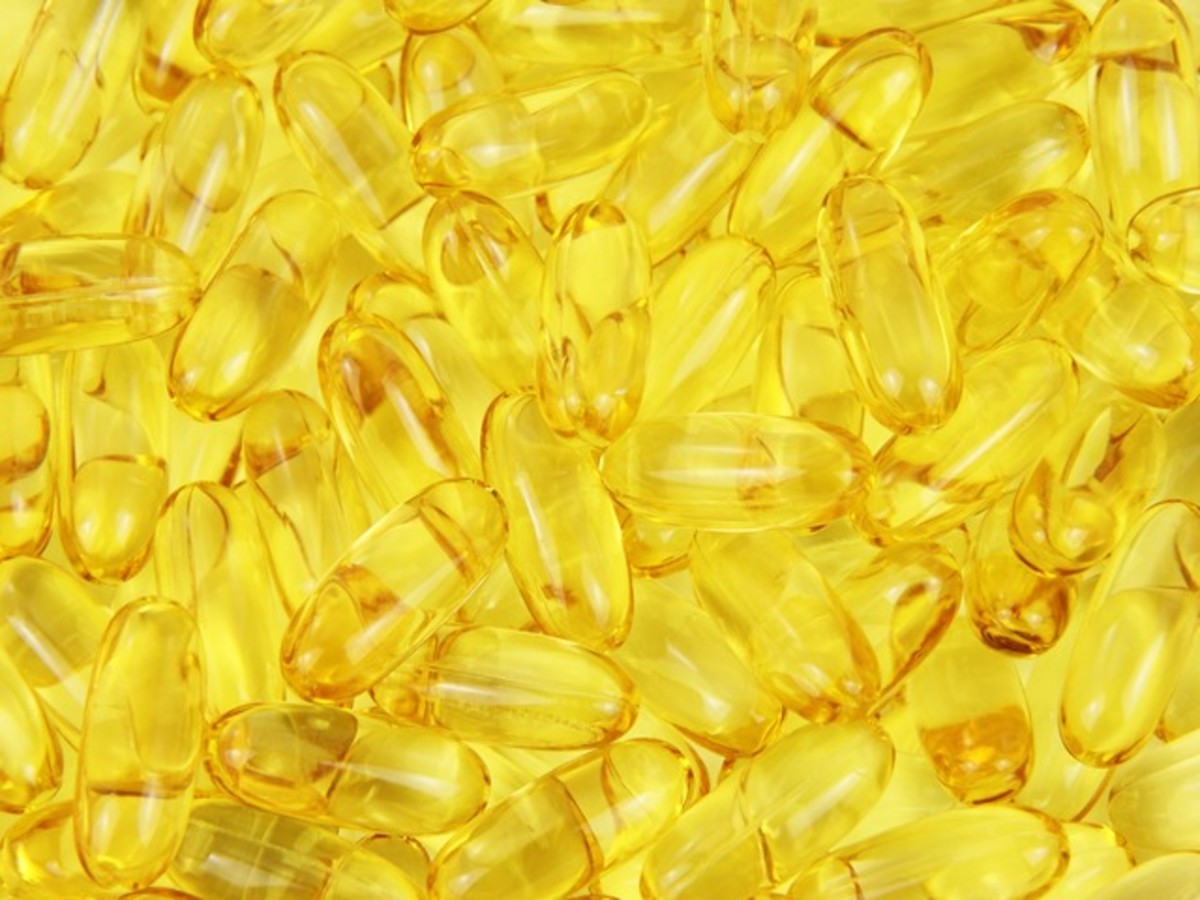Dietary and sport supplement reviews
Before I get started
I'd just like to issue a short disclaimer, then explain how this hub will be laid out.
I cannot speak 100% for the potency, efficacy or safety of every supplement that I review here. I will use information based on research from Consumerlab.com, personal (anecdotal) evidence, as well as scientific reference. Consumerlab is a paid resource who independently test supplements at random. They look for toxicity, potency or unwanted ingredients. As this is a members only service, I will not divulge a large amount of their findings. An occasional quote, a reference or the like.
I strongly recommend the yearly membership! It includes newsletters, drug recalls, supplement recalls, as well as what's really in what you're taking. I am not compensated for advocating this service.
http://www.consumerlab.com/
The FDA does not evaluate any supplement, nor do they require new supplements be listed in their database (their are a few exceptions). Therefore, supplement manufacturers are not held to any standard (although it is unlawful to distribute vitamin C supplements below label dosage- but the FDA doesn't test them!), so your supplement could contain NONE of what the label claims!
Also, the title of this group of articles bears the tag "legal performance enhancement". I cannot guarantee some of these supplements won't cause a reactive doping control test. Following the 2005 ban on prohormones, several companies- Gaspari Nutrition, Legal Gear, LG Sciences, Ergopharm, Peak Performance, EST Nutrition, ALRI, Designer Supplements, Competitive Edge Labs, Primaforce, and RPN (holy crap, right?), and more, have all marketed real steroids to the public, disguised as supplements. For this reason, I must be held harmless for any adverse event in connection with supplements that II review. I have no control over what the manufacturer really puts in there.
If you have experienced an adverse event in connection with any of the supplements from the above mentioned companies, I urge you to report it to the FDA and the Federal Trade Commission.
http://www.fda.gov/Safety/MedWatch/HowToReport/default.htm
https://www.ftccomplaintassistant.gov/
Each capsule will concentrate on a specific product "type", it's role in our diet, how effective Consumerlab, various logs from Bodybuilding.com (A VERY reliable source) and I found each. I will also include anecdotal and scientific evidence on combining products,or when to most effectively use them.
I'd also like peoples' input as to the supplements you might like reviewed. Feel free to post these in the comments section.Please, don't ask about any illicit performance enhancement. I do not use, nor advocate the use of illegal drugs in the gym, nor in competition. As I always say, "Two types of people abuse steroids- professional athletes and losers. I am neither."
Protein powders
Proteins are chains of amino acids joined by peptide bonds. As these bonds are broken through digestion, the individual amino acids become available. Many are used in the body to synthesize other amino acids, while the bulk of them are involved in building new proteins. These proteins may be a part of our immune system, muscles, brain, while some are even used by viruses and other microbes to form proteins they need to proliferate.
The L in front of an amino acid's name means laevo. In short, this refers to the molecular layout (coming from the Latin for left), denoting a laevorotory compound. I possess a "less than substantial understanding" of DL isomers, though I'll touch on them when it's important
Most people reading this article will be concerned with muscle protein synthesis. The most important aminos here are as follows: L leuciine (this amino triggers muscle protein synthesis), L glutamine (this is the most abundant amino in muscle tissue and considered a "cell volumizing" amino). Please note, glutamine peptides have been shown to be assimilated more effectively than free form glutamine.
Amino acids also come in many forms. Ethyl ester, alpha ketogluterate, free form, peptide, alpha ketoisocaproic acid, alpha ketoisocaproic acid calcium, and more.
Before I begin with specific brands, I'd like to point out that every protein has a score referred to as a biological value. This score s based on the quality/quantity of essential amino acids (those we cannot synthesize), how quickly the protein is digested, as well as how easily it's assimilated. As far as food sources go, no protein has a better BV than whey protein. Yes, Wikipedia says differently, but someone has bastardized that article. Whey, derived from milk (20% of milk protein is whey) has an essentially impossible score of 104-105. Many companies engineer their protein products to improve this score even more. The other common commercially available protein sources that I'll speak of are egg, as egg albumin (next in line after whey's BV). [Whey is also superior over egg protein for athletes due to the high concentrations of calcium. Muscles, not just bones NEED calcium!], and casein (different caseinates are derived from milk).
One of the most common forms of engineering proteins is hydrolysed protein. This is the process of breaking some of the peptide bonds with water, commonly rendering the fractions into di, tri and oligo peptides (lesser chains).
When considering milk derived proteins, look for reduced lactose or lactose free! Lactose is milk sugar, and many people, though not clinically intolerant, do experience bloating, gas and diarrhea after ingesting it. I'll concentrate most of my efforts t'ward milk proteins. The preponderance of evidence suggests they hold the greatest value for we athletes.
Some of the most popular and clearly some of the best branded protein powders on the market are:
The KINGS of protein powders would be Optimum Nutrition's Gold Standard Whey and their Platinum Hydro Whey. Both are whey protein isolates. Both are hydrolysed for fast delivery. One thing you'll find on Optimum's package that you'll VERY rarely see in the supplement world- Nutrition Facts. Yeah, not Supplement Facts. That label means a lot. You won't see the FDA's disclaimer on those cans,because both products are approved by the FDA as a food. That means the FDA evaluates the potency of the listed nutrients through testing.
Creatine
Most of what we "know" about creatine is still open for debate. The only finite is creatine is a biological precursor to adenosine triphosphate (ATP),a form of cellular energy. For all we know, creatine in any form besides phosphocreatine is essentially useless to we humans. This is the body's stored form of creatine. There have been some inconclusive studies in regard to alzheimer's, as well as some other neurological diseases. We don't care about that, we just want to be big, strong, good looking and kinda dumb.
Creatine has exhibited the ability to improve strength in a number of clinical studies. For powerlifters who are concerned with making weight (or other explosive athletes), you should know, creatine will put weight on you. This is the result of intramuscular H2O. Creatine will NOT have an undesirable affect on muscular definition. The water is not subcutaneous!
There are many misconceptions still abounding regarding creatine:
It's not a steroid, you moron. It has absolutely no androgenic properties on it's own. Some studies have linked creatine supplementation to an increase in dihyrotestosterone (DHT or "bad" testosterone), but last I knew, these did not have peer review.
So, what are the best forms of creatine, and why?
In short, creatine gluconate, kre alkalyn (that's a trade name), creatine ethyl ester (potent, yet questionably unstable) and creatine malate are the premier forms as we know it. The first two are by far the most stable. One cannot speak of stability without pointing out one very important fact: Creatine is very easily converted to creatinine (not the same-cre at in ine), a waste product of protein metabolism (read toxin).
The best way for you to F' your creatine up would be to mix it with: acidic drinks (which is why krealkalyn [alkaline] is more stable), fructose (fruit sugar- NEVER mix creatine with fruit juice!) or to leave it mixed with fluid for hours on end (creatine gluconate seems to perform best here), even mixing mos6t forms with your protein is detrimental!
One of the best creatine supplements on the market is marketed by a man I dislike personally. Yeah,I know him-- but these articles must be objective! Gaspari Nutrition markets (yeah, he doesn't have a factory. Others make his stuff for him, then he warehouses it down the road from where I live) Size On. This is a great product. I just want to mention that his Superpump 250 was amazing, 'til he changed the formula (and NO, he didn't just back off on the magnesium). Yes, magnesium could have contributed to SP 250 giving everyone the trots, but the colon is smooth muscle! There was something else in there that caused smooth muscle relaxation (and with that, vasodilation).
Let me ad some biochemistry facts now. Size On is marketed as a pre, intra and post workout supplement. Sugar, even the sugar in Size on should absolutely never be consumed during a wight training workout. Sugar causes the secretion of insulin- Insulin s a growth hormone antagonist-With free insulin in the bloodstream, we humans cannot secrete growth hormone. Not just that, but growth hormone is metabolized in the liver into insulinlike growth factor (IGF-1). This is arguably the most important biochemical reaction where muscle building (hypertrophy) s concerned.IGF-1 causes the maturation of muscle fibers.
The following is a rant, and maybe not that interesting to some:
The changes to Superpump 250 transpired soon after warning letters from the FDA about Halodrol-50 (Madol or desoxymethyltestosterone), Orastan-A and E (all three are steroids sold as supplements). To beat being sued by the FTC, Gaspari Nutrition voluntarily pulled them from the market. He did however create small shell companies to sell these drugs (Peak Performance, maybe EST Nutrition) that all sold the same formulas.
The "new" Superpump 250 is minimally effective at best.
Okay, back to Size On. While Size On is sold as a pre, intra, and post workout supplement, Those of us that understand biochem, know that absolutely no sugar is to be ingested during a training session where a growth hormone reaction would be desirable. This is cold hard fact. Glucose is SUGAR- sugar always causes some insulin to be secreted- and insulin IS a growth hormone antagonist! During training where endurance is key, this may be warranted. Who knows which is more advantageous, though-- the GH (thus IGF-1 once metabolized by the liver). Sometimes we just have to roll the dice.
If you're a bodybuilder, Size On AFTER your workout. A powerlifter? This is tricky, but HGH does see to make freaks out of some.Let me add, too, those wanting to keep precontest weight in check should just shy away from creatine supplementation several weeks out. See if D-ribose helps.
Endurance athletes have to weigh the options between hormone and growth factor agonism and not.
Anyway, I hate this guy, and I know him personally. Some of his products are top shelf. There's no telling how long that will last.
So, at the ed of all of this-- SizeOn or any of the incarnations of Krealkalyn are my top picks as creatine supps. Muscle Tech's creatine supps aren't bad. Gakic and Creakic (alpha keto isocaproic acid calcium compounds) is worth looking into for endurance athletes or those who have trouble finishing a workout due to muscle fatigue
Glucoronolactone
Whoa, sounds scary, but you've probably ingested it before. I'm not going to sicken the passer by with too much unnecessary chemistry, but understanding how parts make a whole can lead to some amazing anecdotal discoveries. This becomes science once sufficient control is administered. But who cares? If something works for you simply because you believe it to, it is an ergogenic aid (though psychological in origin). Yep, it's in Red Bull, as well as many preworkout supplements.
D-Glucurono-γ-lactone, or in organic chemistry nomenclature, D-glucurono-3,6-lactone (henceforth referred to as DGL) is a natural metabolite of glucose and regulates the formation of glycogen. Its precursor, D-glucuronic acid (henceforth referred to as DGA) remains in an equilibrium state with glucuronolactone at physiological pH.
Layperson's terms? Glycogen is the human body's form of stored carbohydrate. This in itself seems to offer some compelling evidence that this specific substance can prolong physical activity (if anaerobic activity alone).
If you've head any horror stories about this ingredient, well, science still isn't sure about it's efficacy as a supplement. I'm a Snopes guy. I love Snopes, and very often Snopes is the best place to go in order to quell or support urban legend.
http://www.snopes.com/medical/potables/redbull.asp
Please, be discerning when performing Internet searches of glucoronolactone. There is a ton of crap information abounding. The chemical structure is finite. The claims of what it does and how it does it, dubious. As a supplement, we still aren't sure how, why, and if it really works.
Based on this statement, this is all I have for now. Sorry. I'd rather be brief than wrong.








